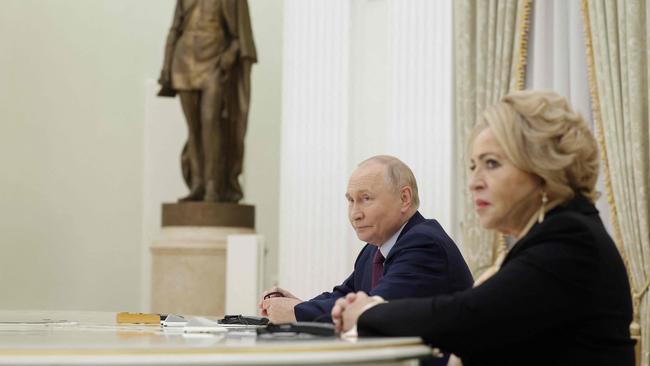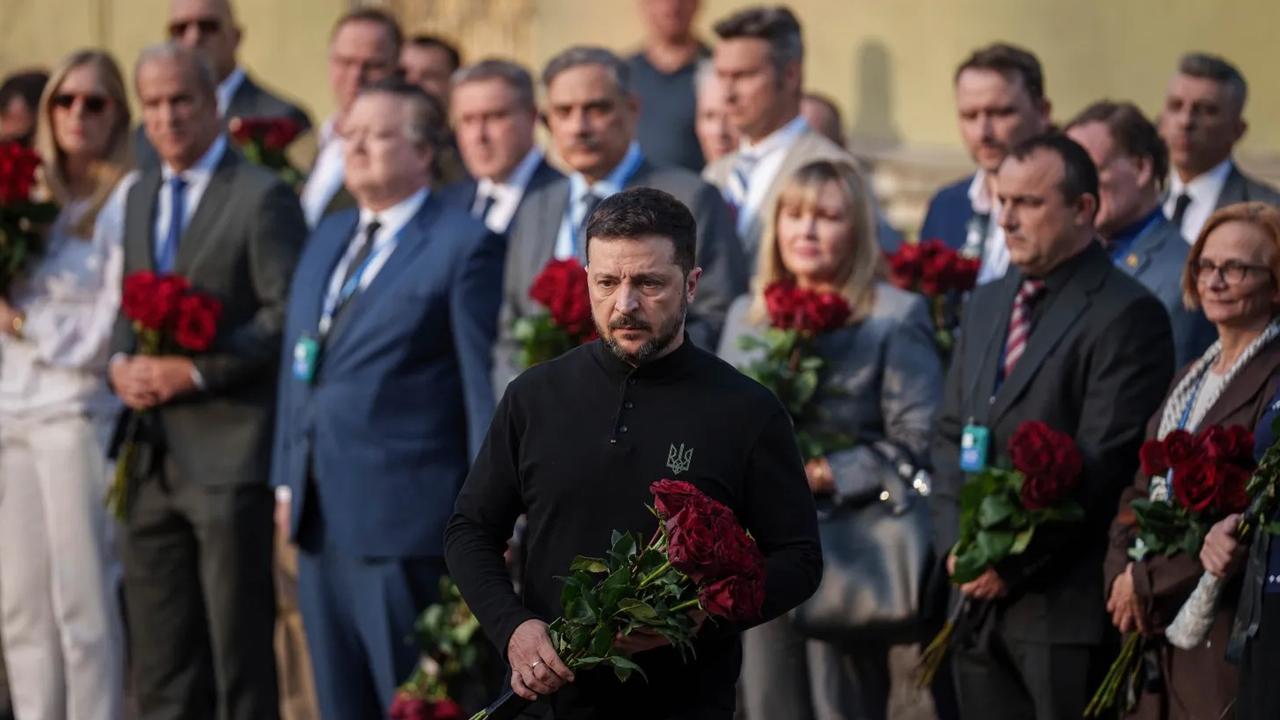Russia: Putin takes aim at childlessness to raise birth rate
Suggesting that raising children is anything but a joy is set to become illegal in Russia under a law banning the ‘child-free movement’.

“Little kids, little troubles, big kids, big troubles,” goes the well-known Russian proverb.
The saying, as well as others that suggest raising children is anything but a source of boundless joy, is set to become illegal in Russia under a law banning what Moscow describes as the “child-free movement”.
Vyacheslav Volodin, the Russian parliamentary speaker, has said that MPs are working on legislation to outlaw online or media “propaganda” that encouraged “a conscious refusal to have children”. The planned law comes as Russia faces what the Kremlin calls a “catastrophic” decline in birth rates that has been made worse by the war in Ukraine.
Nina Ostanina, the head of the Russian parliament’s committee on family issues, said the law would make it illegal to write or say things such as “children are a burden” on social media or television.
Ms Ostanina said that Russia needed a “special demographic operation” to boost its falling population – a reference to the Kremlin’s term for its invasion of Ukraine.
Russia recorded its lowest birth rate in 25 years in the first six months of 2024, official figures show. Dmitry Peskov, President Vladimir Putin’s spokesman, described the rate as “catastrophic for the future of the nation”.
Last week Valentina Matviyenko, the head of the upper house of parliament, launched a tirade against “radical” Western feminism. One of Putin’s closest allies, Ms Matviyenko told the Izvestia newspaper that a woman’s “main mission” in life was to become a wife and mother.
Widely seen as Russia’s most powerful woman since Catherine the Great, Ms Matviyenko said it should be illegal to say publicly that choosing not to have children was an acceptable or positive choice. Her only child, Sergei, is a wealthy banking official.
The Russian Orthodox Church, one of Putin’s biggest supporters, backed the proposal. “Child-hating, people-hating ideologies, particularly child-free, must be banned and equated with extremism since they are destroying our future,” said Fyodor Lukyanov, the head of the church’s commission on the defence of motherhood and childhood.
The child-free bill was rejected last year by MPs after concerns by church officials that it would inadvertently outlaw discussions about celibacy within the monkhood. It is being reworded to address those fears, state media said.
Russia’s population of 146.1 million could shrink to about 130 million over the next 20 years, according to Rosstat, the state-run statistics agency. By 2100, its population could have halved to just 74 million, the UnN has said.
Critics said that economic problems and the war in Ukraine rather than the non-existent “child-free movement” were the main reasons why many Russian couples are not starting families. “In conditions of war and social insecurity, people want to give birth less and less,” Daria Serenko, an exiled feminist activist, wrote on social media.
About 200,000 Russian soldiers are believed to have been killed in Ukraine, while at least 650,000 people have fled the country since the start of the war. “Who am I supposed to have a child with?” asked the wife of a mobilised Russian soldier in a recent online video.
Russia’s fertility rate, which represents the average number of children born to a woman during her life, is 1.4. While that rate is higher than in many Western countries, Putin has said that the survival of Russia as “an ethnic group” depends on women having at least two children. “And in order to expand and develop, you need at least three children,” he said in February.
Shortly after the start of the war, the Kremlin restored the Soviet-era award of Mother Heroine. The award, which is worth one million roubles ($15,000), is given to women who have 10 or more children.
Last year Margarita Pavlova, a Russian senator, said it was wrong to encourage women to go into higher education as they would likely have fewer children as a result.
The campaign to encourage Russians to have more children has been accompanied by efforts to restrict abortion rights. Patriarch Kirill, the head of the Russian Orthodox Church, has urged the Kremlin to make it a crime to “incite” a woman to have an abortion, while private clinics in some regions are coming under pressure to stop terminating pregnancies. The health ministry has also issued guidelines telling doctors how to dissuade women from having abortions.
“The fight against abortion does not seem to be an expression of Christian ethics. There is only one goal here: cannon fodder,” Elvira Vikhareva, an opposition activist, said.
Individuals who violate the law on child-free statements would face fines of up to 400,000 roubles, Mr Volodin said. Companies that fall foul of the law will be fined up to five million roubles. Practice shows, however, that laws against what Putin describes as destructive Western ideologies are prone to escalation once they have been approved by the Kremlin.
THE TIMES



To join the conversation, please log in. Don't have an account? Register
Join the conversation, you are commenting as Logout